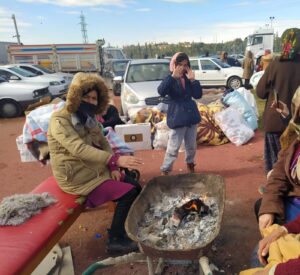Written by Somaia Valizadeh
Most of the students had been in classrooms for taking a practice university exam at the Kaaj education center in Dashte Barshi, a Hazara neighborhood in Kabul. Witnesses believe they heard gunshots before the detonation. On September 30, 2022, a suicide bomber blew himself up at the educational facility at 7:30 a.m. early in the morning. About 60 girls were killed. ISIS’s public statements of “killing Shia Hazara everywhere” from 2021 indicate that it intends to have a deliberate policy behind these mass killings.
For more than a century, the Afghan Hazara people have faced systematic discrimination and severe persecution because of their ethnic and religious identity. The Taliban and other extremists, particularly the Khorasan branch of IS, view the Hazaras as sworn enemies, largely because of their Shia religion. The Taliban and the IS are Sunni moslems The Hazara community has faced persecution throughout history, including frequent massacres, slavery, expulsion and forced religious conversion (from Shia to Sunni) and expulsion from their ancestral lands.
Systematic violence against the Hazaras in Afghanistan began from 1891 to 1893 under Abdul Rahman Khan and continues to this day. More than half of the entire Hazara population in Afghanistan was forced to flee during the genocidal war. Today the violence has genocidal dimensions. Attacks take place in maternity hospitals, public transport and places of worship.
Afghanistan signed the United Nations Convention on the Prevention and Punishment of the Crime of Genocide already in 1956; the systematic persecution of Hazaras, nevertheless never stopped. Violence against Hazaras had increased even before the Taliban took over Afghanistan in 2021. In the first half of 2021 alone, the United Nations recorded 20 attacks on Shia/Hazara. 143 Hazara civilians were killed and more than 300 injured.The numbers rose after the Taliban took power. At least 700 Hazara civilians have been killed or wounded in 13 targeted ISIS attacks.

Legal authorities attitude
There are three sources of law on the genocide in Afghanistan: 1. In 1946 the Convention on the Prohibition and Punishment of the Crime of Genocide was passed; Afghanistan joined this convention in 1956. This Convention not only defines genocide but also obliges governments to prevent genocide and prosecute its perpetrators (Articles 1 and 4). 2. Statute of the International Criminal Court. Afghanistan joined in 2003. The Statute regulates the additional jurisdiction of the International Criminal Court to try persons who have committed four specific international crimes: genocide, crimes against humanity, war crimes and crimes of aggression (Article 5). 3. Domestic laws of Afghanistan, particularly Articles 332 to 334 of the Afghan Penal Code. The Penal Code empowers Afghanistan’s judicial authorities to investigate, prosecute and bring to justice the crime of genocide.

International responsibility for the prevention of genocide
Several agencies are responsible for preventing and prosecuting genocide. The Convention on the Prohibition and Punishment of the Crime of Genocide places primary responsibility on governments. According to Article 1 of the Convention, the Afghan government has an obligation to prevent and prosecute genocide. If the government breaches this obligation, other governments can sue that government in the International Court of Justice (Article 9 of the Convention). Gambia has filed a lawsuit against Myanmar in the International Court of Justice over crimes committed by the Myanmar army against the Rohingya. When a state is unwilling or unable to prevent genocide, the doctrine of the responsibility to protect or the procedure of humanitarian intervention allows other states to take the necessary measures, including the use of coercive force, to prevent genocide.
Spain prosecuted Guatemalan government officials for genocide between 1999 and 2005. The International Criminal Court also has the power to investigate and prosecute crimes committed by nationals of member states on their territories.
The Security Council, the Secretary-General, and the Human Rights Council of the United Nations can also form a fact-finding commission to investigate suspected cases of genocide when the member state is unable or unwilling to prosecute genocide. The Human Rights Council formed such a commission to investigate the Rohingya genocide.

Conclusion
Taking action against the threat of genocide does not require as much certainty about the nature of these attacks. The chain of attacks against the Hazaras in Afghanistan is sufficient reason for the existence of particular Hazara-related vulnerabilities. First, the Afghan government should take action, and then the United Nations. In essence, according to the universal responsibility to prevent genocide, every government in the world has a responsibility to take the necessary measures to prevent genocide in Afghanistan.


